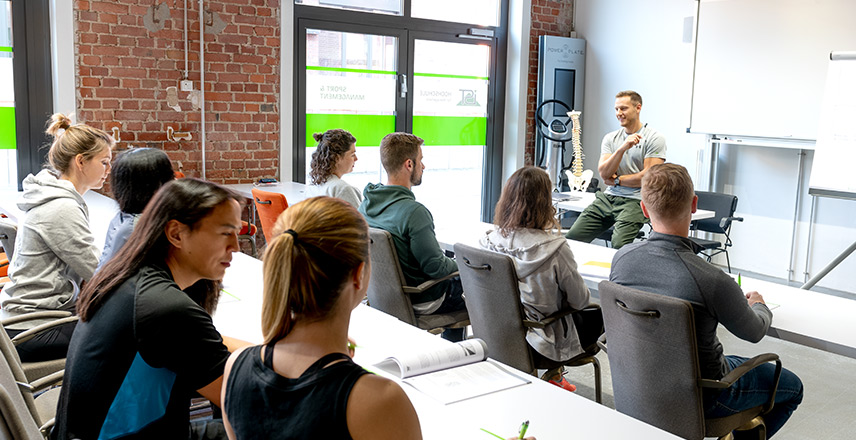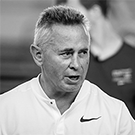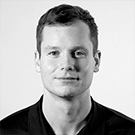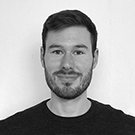External Professors

Below you will find the external professors of the Master's Program in Exercise Science & Sports Nutrition.
Prof. Dr. Ian Jeffreys PhD, FNSCA, FUKSCA, RSCC*E, PGCE, CSCS*D, ASCC, NSCA-CPT*D.

Ian is an internationally renowned and award-winning coach, educator and author and is regarded as a world authority in the development of speed and agility for team sports, where his unique Gamespeed system and RAMP warm-up protocols have been adopted by a wide range of coaches and organisations. A former professional ruby player, where he played at the highest level for 15 years, Ian is the director of All-Pro Performance a consultancy and education company based in Brecon, Wales. Ian is an Emeritus Professor in strength and conditoning, a visiting professor at Reykjavik University and IST and consults extensively with several professional sports organisations. Ian has coached at international and professional levels and worked with athletes, clubs and sports organisations in over 20 countries around the world.
Ian is currently the President of the National Strength and Conditioning Association (NSCA), the first non US citizen to hold this position and was also on the Board of Directors between 2016 and 2019. Ian is an Emeritus Registered Strength and Conditioning Coach (RSCC*E) and also a Certified Strength and Conditioning Specialist (CSCS), and Certified Personal Trainer (NSCA-CPT) with the NSCA and has been re-certified with Distinction (*D) in both categories. He was the NSCA’s High School Professional of the Year in 2006, the first time the award had ever been presented to a coach working outside the United States. This was awarded for his pioneering work in developing a Performance Academy for youth athletes which produced numerous international performers and championship teams. In July 2009 Ian was awarded a Fellowship by the NSCA.
Ian is a Founder member of the United Kingdom Strength and Conditioning Association and was a member of the Board of Directors from the organisation’s inception in 2004 through to 2013. With the UKSCA he is an Accredited Strength and Conditioning Coach (ASCC), and an honorary Fellow of the Association, as well as being an assessor and tutor. He is on the advisory board to the Korean Strength and Conditioning Association, the Polish Strength and Conditioning Association and the Shanghai Sports Institute. In 2019 Ian was made a life member of the Polish Strength and Conditoning Association and in 2021 was awarded a Career Achievement Award by the Strength and Conditoning Society, recognising his contribution to the profession of strength and conditioning.
Ian has authored/edited twelve books, over 30 book chapters and over 100 strength and conditioning articles which have featured in the leading international Journals. He is the Editor of the UKSCA Journal, “Professional Strength and Conditioning” and is on the Editorial Board for the NSCA’s Strength and Conditioning Journal, and the Journal of Australian Strength and Conditioning. Ian is a much sought-after Conference Presenter and has given keynote presentations and hosted high performance workshops at a host of major conferences around the world.
Books
- Jeffreys, I. (2007). Total soccer fitness. Coaches Choice.
- Jeffreys, I. (2008). A coach's guide to recovery: The performance lifestyle. Coaches Choice.
- Bate, R., & Jeffreys, I. (2014). Soccer speed. Human Kinetics.
- Jeffreys, I. (2019a). The warm-up – Maximise performance and improve long-term athletic development. Human Kinetics.
- Jeffreys, I. (2019b). Effective coaching in strength and conditioning: Pathways to superior performance. Routledge.
- Jeffreys, I., & Moody, J. (2021). Strength and conditioning for sports performance (2nd ed.). Routledge.
- Jeffreys, I. (2021). Gamespeed: Movement training for superior sports performance (3rd ed.). Coaches Choice.
- Jeffreys, I. (Ed.). (2024). Developing speed – NSCA performance series (2nd ed.). Human Kinetics.
Book Chapters
- Jeffreys, I. (2015a). Progression. In A. Jimenez (Ed.), EHFA standards and guidelines (pp. 141-149). Human Kinetics.
- Jeffreys, I. (2016a). The developing athlete. In D. Lewinden & D. Joyce (Eds.), Sports Injury Prevention and Rehabilitation: Integrating Medicine and Science for Performance Solutions (pp. 414–428). Routledge.
- Jeffreys, I. (2016b). Warm-up and stretching. In G. G. Haff & N. T. Triplett (Eds.), The essentials of strength training and conditioning (pp. 317-350). Human Kinetics.
- Jeffreys, I. (2019a). Sport specific agility and quickness training – Soccer. In NSCA (Ed.), Developing agility and quickness (pp. 217-224). Human Kinetics.
- Jeffreys, I. (2019b). Sport specific agility and quickness training – Rugby. In NSCA (Ed.), Developing agility and quickness (pp. 211-216). Human Kinetics.
- Jeffreys, I. (2019c). Agility training for young athletes. In R. Lloyd & J. Oliver (Eds.), Strength and conditioning for young athletes: Science and application (2nd ed., pp. 228-247). Routledge.
- Jeffreys, I. (2021a). The warm-up. In P. Hough & S. Penn (Eds.), Advanced personal training: Science to practice (2nd ed., pp. 129–142). Routledge.
- Jeffreys, I. (2021b). The structure and function of the neuromuscular system. In I. Jeffreys & J. Moody (Eds.), Strength and conditioning for sports performance (2nd ed., pp. 43–61). Routledge.
- Jeffreys, I. (2021c). Ecosystem thinking for the strength and conditioning coach. In I. Jeffreys & J. Moody (Eds.), Strength and conditioning for sports performance (2nd ed., pp. 12–21). Routledge.
- Jeffreys, I., & Goodwin, J. (2021a). Developing speed and agility for Sports Performance In I. Jeffreys & J. Moody (Eds.), Strength and conditioning for sports performance (2nd ed., pp. 342-367). Routledge.
- Jeffreys, I., & Goodwin, J. (2021b). Plyometric training – Theory and Practice. In I. Jeffreys & J. Moody (Eds.), Strength and conditioning for sports performance (2nd ed., pp. 314-341). Routledge.
- Massis, M., & Jeffreys, I. (2021). Skill acquisition and motor learning. In I. Jeffreys & J. Moody (Eds.), Strength and conditioning for sports performance (2nd ed., pp. 22-33). Routledge.
- Jeffreys, I. (2024a). The nature of speed. In I. Jeffreys (Ed.), Developing Speed: NSCA performance series (2nd ed., pp. 1-20). Human Kinetics.
- Jeffreys, I. (2024b). Developing sport specific speed. In I. Jeffreys (Ed.), Developing Speed: NSCA performance series (2nd ed., pp. 119-128). Human Kinetics.

Dr. Ian Rollo is Principal Scientist and Head of International Performance and Education Engagements at the Gatorade Sports Science Institute (GSSI). In this role, he provides sports science and nutrition support to elite football organizations including Manchester City FC, Wrexham FC, and UEFA. Dr. Rollo’s research interests lies in sports nutrition and exercise physiology. He holds a BSc in Sport and Exercise Science from the University of Birmingham and an MSc in Exercise Physiology from Loughborough University. He earned his PhD in 2009 from Loughborough under the mentorship of Professor Clyde Williams. Earlier in his career, Ian contributed to research at the August Krogh Institute in Denmark, focusing on fatigue mechanisms during high-intensity exercise and nutritional strategies tailored for football performance. He has served as a performance consultant across professional football, swimming, and rugby. Dr. Rollo is an Honorary Research Fellow at Loughborough University, where he previously led the MSc program in Sport and Exercise Nutrition. He also directs the FC Barcelona Certificate in Sports Nutrition for Football and oversees clinical research initiatives at PepsiCo, including the development of innovative technologies to enhance athletic performance. Ian continues to publish scientific work and deliver invited lectures around the world.

Dr. Vlad Sabou is Senior Scientist at the Gatorade Sports Science Institute (GSSI). In this role, he provides hydration and nutrition support to elite sports organizations. Dr. Sabou’s research interests lie in sports nutrition, hydration and exercise recovery. Dr Sabou holds an MSc in Sports Nutrition from Liverpool John Moores University. He completed his PhD in 2025 on the topic of ‘Tart cherry supplementation in exercise and recovery’ at the University of Exeter. Alongside this, Dr Sabou also contributed and published peer-reviewed articles looking at the hydration requirements of elite football players. Dr Sabou is registered with the Sport and Exercise Nutrition Register (SENr) and has collaborated over the years as a Performance Nutritionist with the Romanian Football Federation, British Championship and Premier League Football Clubs, the Elite Running Team and athletes from a range of Olympic sports.

Dr. Thorben Aussieker completed his Bachelor’s degree in Sport and Performance at the German Sport University Cologne and went on to earn a Master’s degree in Health Science Research at Maastricht University. He subsequently received his PhD degree from the Institute for Human Biology at Maastricht University under the supervision of Prof. Luc van Loon. His research has focused on molecular muscle adaptations to exercise and inactivity since his Bachelor studies. For his Master’s thesis, he examined muscle stem cells during a two-week bed rest study, while his PhD research focused on the impact of collagen protein on muscle protein synthesis and other body structures. Alongside his studies, Thorben worked in athletic training, supporting athletes and clubs from recreational to Olympic levels.

Sylvain Laborde completed a double degree at the University of Caen Normandy, earning a Master’s in Sports Science (2007) and a Master’s in Psychology (2010). He went on to receive his PhD in Sports Science from the German Sport University Cologne (2011), where he investigated the influence of emotions on decision-making processes in handball players. He later completed a second PhD in Psychology (2019) at the University of Caen Normandy, focusing on a specific relaxation technique controlled slow breathing and its effects on sleep, stress management, and cognitive performance. In 2021, he earned his habilitation at the German Sport University Cologne, where he developed the theory of the vagal tank. Today, he works as a research associate at the Department of Psychology at the German Sport University Cologne. His main research interests include heart rate variability as a psychophysiological indicator of self-regulation, stress management and cognitive performance, the application of various breathing techniques in sports, and the role of emotional intelligence in athletic performance.

Dr. Jan-Frieder Harmsen is a lecturer in the Master’s program “Exercise Science and Sports Nutrition.” After completing his Bachelor’s and Master’s degrees in Exercise Science at the German Sport University Cologne, he earned his PhD in Biomedicine at Maastricht University, where he also taught in the Bachelor’s and Master’s programs in Biomedical Science. Since November 2023, he has been conducting research in the field of “Healthy Living Spaces” at the University Hospital of RWTH Aachen.
In addition, Dr. Harmsen runs his own science podcast, 247muscle.com, where he interviews renowned researchers in skeletal muscle physiology, chronobiology, sleep, and physical performance. His research focuses on chronobiology, particularly the timing of behaviors and the health risks associated with shift work. He also investigates the interaction between light exposure and health, as well as the effects of ambient light and temperature on cardiovascular and metabolic health, with a special focus on hypertension and type 2 diabetes.

David Walzik developed an interest in sports medicine research during his Bachelor’s studies at the German Sport University Cologne, gaining his first valuable experience at the Institute of Circulatory Research and Sports Medicine. He completed his Bachelor’s in 2019 and, thanks to a scholarship, spent six months conducting research in Australia. He is currently pursuing his PhD at the Technical University of Dortmund in a research group at the Institute of Sport and Sport Science, focusing on neuroimmunological effects of physical activity. His doctoral research investigates the metabolism of immune cells during exercise, with the long-term goal of leveraging the immunological effects of acute physical stress in various medical conditions. Due to his interest in medical topics, he also began studying medicine at the University of Cologne in 2020 alongside his research work.

Dr. Niklas Joisten is currently working as a postdoctoral researcher in the Sports Medicine division of the Institute of Sport and Sport Science at the Technical University of Dortmund. He completed his Bachelor’s and Master’s degrees in Sports Science at the German Sport University Cologne, where he also earned his PhD in the Department of Molecular and Cellular Sports Medicine. During his doctoral studies, he gained international research experience in Switzerland and Australia. His research interests focus on exercise-induced effects and adaptations of the human immune system and metabolism, particularly in the context of their pathophysiological relevance for various chronic diseases. He regularly publishes in internationally recognized journals in the fields of Sports Science and Biomedicine.

